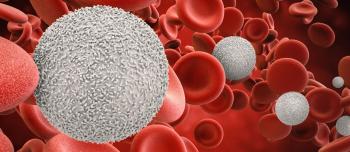MASAC Safety Information Update on Emicizumab (HEMLIBRA), for Persons with Hemophilia A and Inhibitors to Factor VIII:
Guidance on Evaluation for Anti-drug antibodies and Review of Safety Reporting Systems
Approved by the Medical and Scientific Advisory Council (MASAC) of the National Hemophilia Foundation on April 24, 2018
Executive Summary:
- First report of an anti-drug antibody that resulted in loss of efficacy of emicizumab
- Recommendation for providers and patients in case of observed loss of efficacy
- Update on recent safety communications from pharmacovigilance surveillance
- Review of monitoring systems and processes for investigational medicines including post-authorization
Emicizumab-kxwh (HEMLIBRA, Genentech) was approved for use by the US Food and Drug Administration on November 16, 2017 for individuals with hemophilia A and inhibitors. This was based on the safety and efficacy demonstrated in the global clinical trial in adults and adolescents (age >12 years old; HAVEN 1) and interim results from the global clinical trial in children (<12 years old; HAVEN 2).
The unique mechanism of action of emicizumab has implications for management of bleeding events and utilization of laboratory assays. Important safety information is provided in the prescribing information (https://www.accessdata.fda.gov/drugsatfda_docs/label/2017/761083s000lbl.pdf) and MASAC has also provided guidance to the hemophilia community in this regard in an interim guidance statement on November 24, 2017
(https://www.hemophilia.org/sites/default/files/MASAC-Update-on-the-Approval-and-Availability-of-the-New-Treatment.pdf). No thrombotic microangiopathy or thrombotic events have been reported with adherence to these management principles after implementation within the global clinical trial program or since commercial availability within the US.
Anti-drug Antibodies
The prescribing information also includes important safety information on the risk for anti-drug antibodies. Use of any therapeutic protein carries the potential for the development of anti-drug antibodies. These were observed within the global clinical trial program with emicizumab and are described within the US and European Union (EU) emicizumab product labels. No patients tested positive for an anti-drug antibody within HAVEN 1. However, recently, a pediatric patient within the ongoing HAVEN 2 clinical trial developed an anti-drug antibody to emicizumab that resulted in loss of efficacy. The family decided to discontinue treatment with emicizumab and resumed treatment with their previous medical therapy. This is the first confirmed report of a detectable anti-drug antibody that has impacted the efficacy of emicizumab in a person with hemophilia A. To date, more than 600 persons with hemophilia, with and without inhibitors to factor VIII have been treated with emicizumab worldwide.
The development of an anti-drug antibody to emicizumab is distinct from the development of an inhibitor to factor VIII. Notably, anti-drug antibodies directed against emicizumab may affect how it works in the patient but will not affect the person’s underlying hemophilia or inhibitor status, nor the ability to manage bleeding events with their conventional therapies, including bypassing agents.
Safety Surveillance
Patient safety is of the highest importance, which is why we have systems and processes in place to monitor the safety of all medicines, including emicizumab, on an ongoing basis. All safety data from the ongoing clinical trial programs are reviewed by the investigators conducting the trial, the clinical research organizations supervising the conduct of the trial, the trial sponsor and federal regulators. Serious adverse events (e.g. an event that results in death, is life-threating or requires prolonged hospitalization), in particular, are reviewed promptly to determine several factors including: the severity of the adverse event, the potential contributors to the adverse event, the outcome of the event and an assessment of the potential role of the drug in contributing to the adverse event.
Prior to a drug being approved by the Food and Drug Administration (FDA) it may be available for use under expanded access programs including what’s known as “compassionate use”. Systems and processes are also in place for post-marketing reporting of adverse events as well as adverse events that may occur when a drug is provided through these mechanisms. Like other drugs, emicizumab is available under compassionate use on a case-by-case basis to eligible patients, following a request from their treating physician, if they have a serious or life-threatening condition, have exhausted all other treatment options and are unable to participate in a clinical trial. For these patients, compassionate use can provide another way to access investigational medicines for people who need them, as soon as possible. Because patients receiving an investigational medicine under compassionate use must have had a serious or life-threatening condition, there is the possibility that that patient may have a subsequent serious adverse event, possibly leading to death. Such events are expected to be evaluated similarly to serious adverse events within the clinical trials. Clinical data are obtained as completely as possible by the manufacturer and an assessment of the potential contribution of the investigational medicine is made by the patient’s physician. A recent safety review of emicizumab was shared with the community by Genentech on March 26, 2018. This report detailed 5 patients who had died while receiving emicizumab, including 3 patients who received emicizumab under compassionate use. In all 5 of these cases, the deaths were assessed as being unrelated to the use of emicizumab and do not change the benefit-risk profile of emicizumab. However, the community should appreciate that this information has been made available so that it can be evaluated in context and informed treatment decisions can be made with their provider.
MASAC Recommendations:
In response to this new report of an anti-drug antibody, MASAC recommends the following:
1. Continued diligence in evaluation of clinical efficacy of emicizumab as would be expected for any hemophilia therapeutic. Loss of efficacy of emicizumab may be manifest by an increase in breakthrough bleeding events. Patients concerned about a loss of efficacy should seek prompt evaluation by their provider.
2. Our prior guidance
provided information on assays that may be utilized for evaluation of the activity of emicizumab, utilizing a chromogenic factor VIII activity assay with human reagents that are recognized by emicizumab. However, the widely available conventional aPTT and clot-based factor VIII activity assays can be used in evaluating a case of loss of efficacy.The aPTT should be within the normal range in all persons with hemophilia and an inhibitor to factor VIII when obtained during ongoing treatment with emicizumab; similarly, clot-based factor VIII activity assays will be well above the normal range.In the course of evaluating a reported loss of efficacy, a prolonged conventional aPTT assay and/or a low clot-based factor VIII activity in a person treated with emicizumab should be a useful initial evaluation for the presence of a neutralizing anti-drug antibody directed against emicizumab.Additional information regarding laboratory assays may be found within the prescribing information.
3. There are no commercially available assays in the US for determination of anti-drug antibodies directed against emicizumab. Should a patient and provider have suspicion of an anti-drug antibody outside of the ongoing clinical trial program, they should contact the manufacturer (https://www.gene.com/contact-us/submit-medical-inquiry) for guidance on subsequent evaluation.
4. Recommend that patients and providers continue diligence in reporting any unanticipated adverse events. Available reporting mechanisms can be reviewed here (https://www.fda.gov/Drugs/GuidanceComplianceRegulatoryInformation/Survei...)





